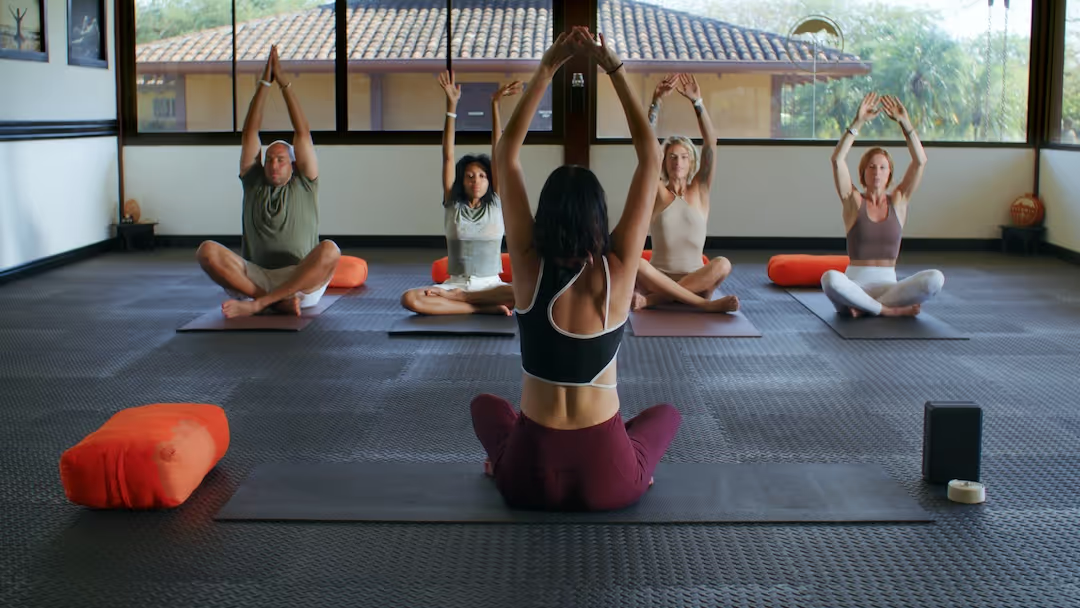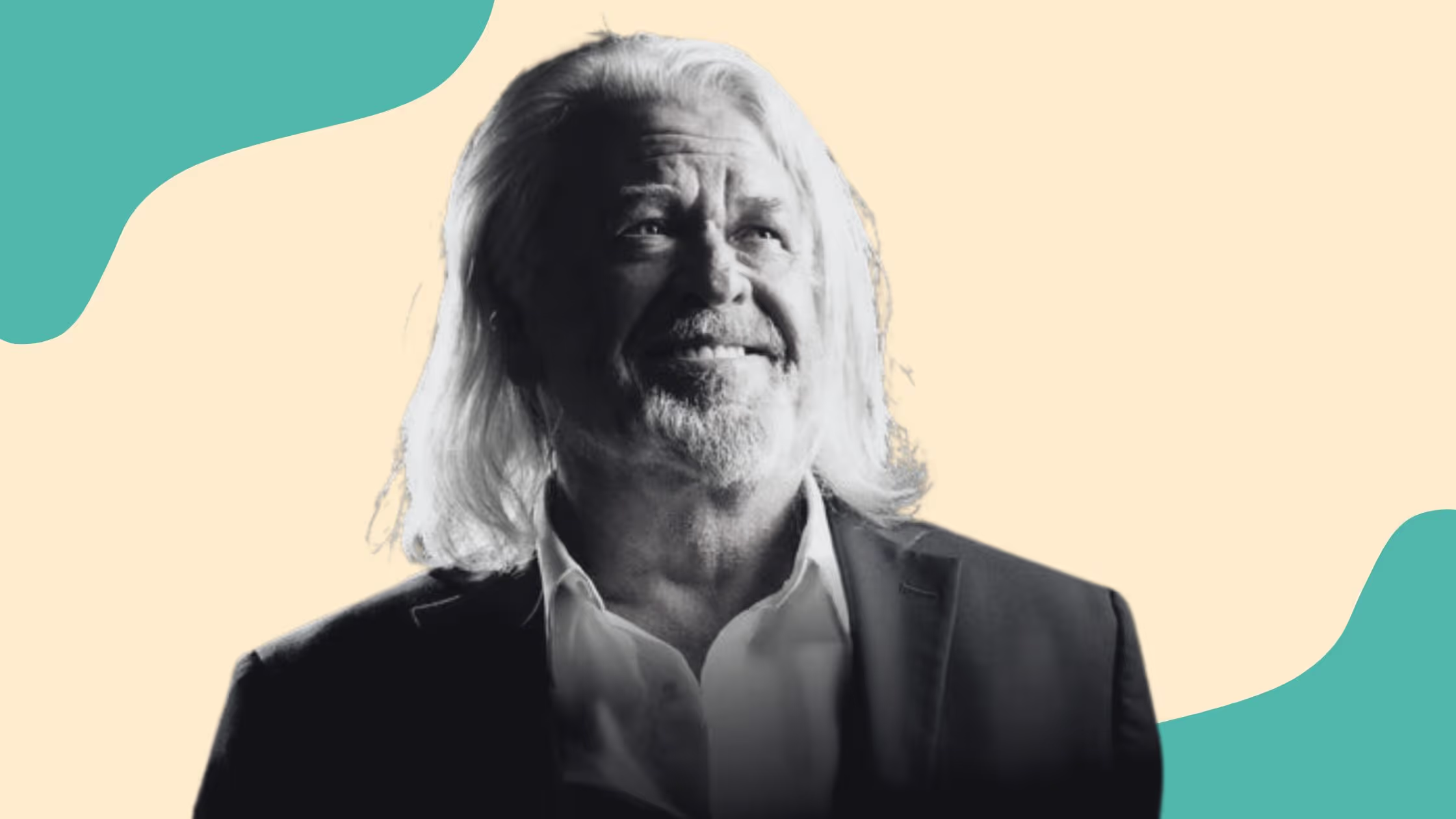How Spirituality and Health are Linked



Are you interested in improving your overall health through a holistic approach that includes spirituality? If so, read on to discover the positive impact of spirituality on stress reduction, mental well-being, longevity, and overall quality of life. Explore the mind-body connection and learn how spirituality can enhance your health. This article provides evidence-based insights into the relationship between spiritual practices and physical well-being and practical guidance on incorporating spirituality into your daily life for better health outcomes. If you're a health enthusiast looking to understand the connection between spirituality and physical wellness, this article is for you.
How Spirituality Affects Health and Wellbeing
Spirituality is a powerful tool that can help individuals find meaning, hope, comfort, and inner peace. People may find spirituality through religion, music, art, nature, or their values and principles. Research shows that the body, mind, and spirit are intertwined. The health of any one of these elements can affect the others. The positive attitude, comfort, and strength gained through religion, meditation, and prayer can promote well-being and healing. Improving one's spiritual health may not be a cure-all, but it can undoubtedly make an individual feel better. Furthermore, it may prevent specific health problems and enable an individual to cope more effectively with illness, stress, or death.
Having a spiritual ground can give people a sense of:
- Acceptance
- Meaning and Purpose
- Forgiveness
- Hope
What Exactly Is Spirituality?
Spirituality involves merging our life experiences with the concept of something more significant and timeless than ourselves. People embrace spirituality for various reasons, such as:
- To enhance their relationships with themselves and others
- Find purpose in life
- Seek solace during times of difficulty
- Explore the idea of the afterlife
- Nurture hope
Spirituality helps us find meaning and value in our daily experiences. It is a comprehensive and intricate concept encompassing many beliefs, practices, and rituals. It forms the foundation of various religious traditions with unique customs and practices. These spiritual practices are shaped by the historical and cultural contexts in which they exist and have evolved. Spirituality is not limited to religious practices but influences different aspects of human existence. It informs our ethical and moral beliefs and guides our sense of social justice. Spirituality is multifaceted and is shaped by diverse perspectives and life experiences. It is a deeply personal and subjective experience that can be expressed in various ways.
Stress Reduction Through Spiritual Practice
Stress is a natural response to feeling threatened or overwhelmed. It can be helpful to motivate us, but too much stress can negatively impact our physical and mental health. Chronic stress is especially concerning because it can lead to inflammation, which can cause problems like fatigue, muscle aches, joint pain, and even long-term diseases. Chronic stress can also harm our brains, increasing the risk of mental illness and impairing our cognitive abilities. However, studies have shown that spirituality can positively affect our health and well-being. Incorporating spiritual practices into our daily lives may help reduce the harmful effects of stress and improve our overall health.
The Influence of Spirituality on Well-Being
Incorporating spirituality into one's life can significantly improve mental resilience. Engaging in spiritual practices, such as meditation, prayer, or attending religious services, can help individuals develop a sense of purpose, meaning, and connection with something greater than themselves. These practices can also provide a sense of inner peace and calm, which can help individuals better cope with stress and adversity. By nurturing their spiritual well-being, individuals can build a strong foundation for mental resilience and overall well-being.
Spirituality Leads to Longevity
Research suggests that recognizing the value of spirituality in our lives can improve our chances of living longer and reduce stress. To nurture our spirit, we can try the following spiritual exercises:
- Express gratitude: Showing gratitude towards the Universe or Higher Power has been linked with improved health outcomes and can reduce stress. Keeping a gratitude journal, where we record everything we are grateful for, can increase our gratitude.
- Pray often: Prayer can help us connect more with our higher self. It doesn’t have to be in the context of a particular religion, but the positive affirmations that prayer provides allow us to feel calmer, safer, and more grounded. It can also bring benefits like meditation, such as lower blood pressure and increased immunity.
- Be optimistic: Trusting a Higher Power for the "big picture" can help us develop a more internal locus of control. Believing in a positive future can encourage us to be optimistic, which research shows has many benefits.
- Keep a journal: Writing down our experiences and reactions to people, situations, and items we've read can be enlightening. Reviewing what we've written from time to time can help us find patterns and understand triggers for frustration and instances and experiences that bring us joy or satisfaction.
- Carve out some time for community service and dedicate your energy to helping others.
- Take a walk through nature.
- Read inspirational books or listen to motivational blogs.
- Experience a wellness retreat.
The Mind-Body Connection
The mind-body connection is about how our thoughts, actions, and emotions affect physical health. Holistic medicine focuses on treating the whole person, not just their symptoms. Doctors now recognize that caring for your mind, body, and spirit is essential for your health. The brain is a powerful organ that interacts closely with the rest of the body. Research shows that our emotions, hormones, and neurotransmitters can affect our blood pressure, heart rate, sleep, and appetite. Studies have shown that the way we think and feel can have a significant impact on our health. Stress, for example, can release hormones that weaken our immune system and cause other health problems. Negative thinking patterns can also make it harder to deal with health issues. By learning how to manage stress and negative thoughts, you can take control of your health and improve your quality of life.
Spiritual Practices for Physical Well-Being
Including spiritual practices and beliefs in our healthcare plan can help us deal with stress, anxiety, and chronic illnesses more effectively. The holistic approach acknowledges that a person's physical, emotional, and spiritual health are interdependent.
- Yoga is a physical and mental exercise that anyone can do. You only need a mat or towel and some space to practice. There are many types of yoga, including more active and relaxing ones. Studies have shown that practicing yoga regularly can have many physical and mental benefits. Yoga can help improve your balance and flexibility, which can help prevent falls and keep you independent as you age. Practicing yoga regularly can strengthen you, improve your endurance, and help you maintain a healthy weight. Yoga can also help improve your mental health and reduce stress and anxiety. Studies have shown that practicing yoga twice weekly for three months can significantly lower stress levels and improve sleep by regulating the sleep cycle.
- Breathwork is a technique that involves breathing in a certain way to help you relax. It can help reduce stress and anxiety and improve mental health. It can also improve physical health by reducing chronic pain, high blood pressure, and asthma symptoms.
- Meditation is a simple and affordable way to reduce stress. It helps you relax and can be done anywhere. It can help improve your immune system and slow down mental aging. Meditation can also help you focus and become more aware of your surroundings, increasing your emotional well-being and overall health. It can help manage symptoms of medical conditions like anxiety, depression, and heart disease.
- Plant medicine is another way to access spirituality and higher consciousness. Ayahuasca has helped many people access their purpose and spiritual path after just one experience.
Plant Medicine Can Elevate Spiritual Awareness
Ayahuasca is a plant indigenous to South America that has been used for centuries. Consumption can create a powerful experience that can change how someone thinks and feels. The effects of ayahuasca can vary based on the individual, environment, and dosage. After consuming it, many people feel more connected to themselves, nature, and the universe. Ayahuasca is called a "teacher plant" because it can offer profound insights and wisdom to help individuals live their lives more clearly and purposefully. The information gained from consuming ayahuasca can be life-long and lead to significant personal growth.
People from all walks of life have reported transformative experiences after drinking ayahuasca. The plant has been known to reveal the root causes of emotional and psychological issues, helping individuals heal and move forward with more resilience and self-awareness.
The lessons learned from ayahuasca can be challenging to put into words since they tend to involve profound mystical experiences and insights that transcend language. However, common themes that emerge from ayahuasca ceremonies include the importance of compassion, gratitude, forgiveness, and connection.
Ayahuasca is a powerful plant that can offer profound insights and wisdom to help individuals live more fulfilling and purposeful lives. Although the experience of consuming ayahuasca can be intense and challenging, the rewards can be life-changing. Drinking ayahuasca can be compared to years of talk therapy in one night, providing a unique opportunity for personal growth and healing.
Plant Medicine Wellness Retreats
Ayahuasca and other plant medicine wellness retreats have become increasingly popular in recent years due to their unique approach to healing. One such retreat is Rythmia, which combines Ayahuasca plant medicine with various therapeutic modalities to promote physical, emotional, and spiritual well-being.
What sets Rythmia apart is its inclusive approach to spiritual healing. The retreat welcomes people of all religious backgrounds and beliefs, creating a safe space for individuals to explore their spirituality without fearing judgment or exclusion.
Many individuals have reported life-changing experiences at Rythmia, citing the combination of plant medicine and therapeutic modalities as a powerful catalyst for personal growth and transformation. Rythmia has gained endorsements from several well-known figures, including Michael Beckwith, who emphasizes the importance of spirituality in healthcare while respecting all faiths.
Ayahuasca and plant medicine wellness retreats like Rythmia offer a unique approach to healing that is gaining recognition and respect in the healthcare industry. By combining ancient wisdom with modern therapeutic practices, these retreats provide individuals with a powerful tool for personal growth and transformation while catering to their spiritual and emotional needs.
Practical Tips for Integrating Spirituality
Spirituality is a personal and abstract concept that can be difficult to define. It encompasses a variety of beliefs and practices, such as religion, meditation, and mindfulness. However, you may need help incorporating spirituality into your daily life practically and meaningfully.
Here are some ideas to help you integrate spirituality into your daily routine:
1. Practice mindfulness.
Practicing mindfulness is one of the most practical and accessible ways to integrate spirituality into daily life. Mindfulness means being present in the moment without judgment. You can start with simple deep breathing exercises or try more structured practices such as meditation.
2. Find meaning and purpose.
Another way to incorporate spirituality into your daily routine is to find meaning and purpose in your actions and goals. This involves setting priorities and objectives that align with your values and beliefs and taking steps to contribute to the greater good.
3. Build connections and relationships.
Our connections with others are often closely linked to our spirituality. Building meaningful and strong relationships with others can help nurture your spiritual growth and well-being. You can build relationships with your friends and family or join a community or group that shares your values and beliefs.
4. Engage in acts of service.
Acts of compassion and service can be a powerful way to connect with your spirituality and positively impact the world. This can include volunteering your time and resources to assist others, or it can be as simple as performing small acts of kindness for those around you.
5. Take time for reflection and contemplation.
Reflection and contemplation can help you connect with your spirituality and gain new insights. You can set aside time for prayer or meditation or sit quietly and reflect on your beliefs and values.
6. Create a personalized spiritual practice plan.
Developing a personalized spiritual practice plan can effectively incorporate spirituality into daily life. You can experiment with different practices and find what works best for you.
7. Book a trip to a plant medicine retreat such as Rythmia.
If you seek a life-changing experience, consider embarking on a 7-day Rythmia trip that promises profound insights and comprehensive integration support. The program is specially designed to ensure long-lasting results, enabling you to continue your journey of personal growth even after the program ends. You will gain powerful insights, let go of limiting beliefs, and start with a fresh perspective. Heal your mind, body, and soul. The Rythmia Way program is designed to accelerate self-discovery and provide participants with the crucial tools to interpret and understand their experience. Blending Ayahuasca plant-medicine ceremonies with modern yoga practices, breathwork, meditation, and integrative classes, the program guides guests toward healing and a more present and purposeful life.
In conclusion, spirituality is profoundly personal and diverse and can take many forms for different people, and it’s essential to explore the relationship between spirituality and well-being. Integrating spirituality into your daily life is a personal journey that looks different for everyone. Finding practices that work for you can give your life a sense of purpose and meaning and help you grow spiritually.
Take the next step
Ready for your life-changing journey?

Transform Depression with Ayahuasca
Watch this educational webinar to explore the therapeutic potential of Ayahuasca in treating depression with Dr. Jeff McNairy and Dr. Mariana Rojas.
Here's what you'll learn in this discussion:
- How people and their brains get stuck in depression
- How Ayahuasca resets the brain of people dealing with depression
- How the Rythmia Way Program helps people reset their lives



